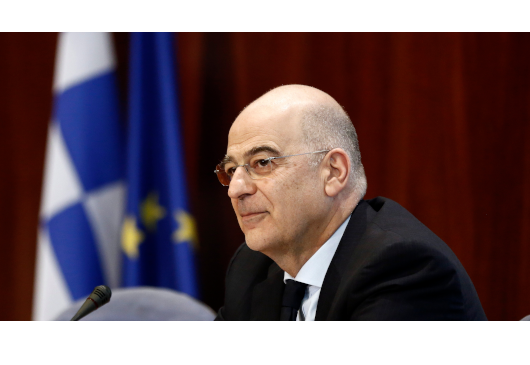 Ladies and Gentlemen,
Ladies and Gentlemen,
Allow me to welcome my dear colleague, Georgios Lakkotrypis, the Energy Minister of Cyprus, and our own former Energy Minister, Ioannis Maniatis, Kostas Gioulekas, the President of the Parliamentary Standing Committee on Foreign Affairs, Mr. Efthymiou, who is presiding today but is also attending as a former President of the OSCE Parliamentary Assembly and as a former Minister, and of course our friend the U.S. Ambassador to Greece, Mr. Pyatt.
Also allow me to congratulate the ESHEA Educational Foundation for taking the initiative to hold this conference, which is both necessary and timely. I won’t be telling you anything new when I say how critical a role the press plays in democratic societies, and especially concerning foreign policy issues.
And in this context, I was very interested to read the minutes of the Educational Foundation’s conference on our national issues, “foreign policy and the press”.
Ladies and gentlemen, sober, objective responsible informing of public opinion is to us a factor in national survival, particularly with regard to foreign policy issues. Because this is the only way to ensure the absolutely vital national consensus on fundamental national choices. And of course, when we are living in the constantly shifting environment of the Eastern Mediterranean, with challenges that are both many and specific, I am obliged to refer to neighbouring Turkey, which is violating the rules of international law and attempting to expand its influence in the Central Mediterranean and in Libya, at the expense of peace and stability in the region.
If I may, Mr. President, I will refer to a personal childhood experience. As you know, I was born in Corfu. As a child, going from my home to the 2nd Primary School, I passed by a spot where, when Don Juan, the Austrian, returned to Corfu after the battle of Nafpaktos – where those who died in the battle of Nafpaktos were buried. So, I always thought that Turkey had historically learned the great historical lesson of that naval battle: that Europe can never allow Turkey to control the Central Mediterranean. Recent actions may indicate that certain things have been forgotten.
In reference to the latest statements from Turkish officials, I would like to state clearly that Greece is always ready to hold honest consultations in the framework of international law. But at the same time, it is never open to eastern-style alleged power bartering or a dishonest and one-sided compromise. In our region, we are trying to shape understandings based on justice and reason.
We are trying to strengthen our country’s relations with our traditional and historical allies: the United States of America, France, the Arab countries, Israel.
There are many examples of success. I refer to the latest: the signing of the amended Mutual Defense Cooperation Agreement (MDCA) with the United States, which benefits not only the two countries that signed the agreement, but also security and stability in the region. And again, I must praise the role of U.S. Ambassador Pyatt, who is with us today, in our achieving this agreement.
Ladies and Gentlemen,
our firm goal is for Greece to be an energy transit gateway and hub. It is an imperative of the times, from East to West and North to South. This will have multiple benefits, not just for Greece and the Greek economy, but also for the wider region.
Enhanced regional energy interconnectivity is of key importance. Our international contacts – bilateral, trilateral and multilateral – are oriented in this direction. And I want to explain clearly, as I and my predecessors have done repeatedly, that these understandings are not directed against anyone. They are completely open to participation, for anyone who agrees with the need for multilateral cooperation.
I want to make special mention of the “East Mediterranean Gas Forum” and the recent signing of its charter by the seven founding members. And I would also like to mention the EastMed pipeline, which links Cyprus, Israel, Greece and Italy, with the latter expected to sign the relevant agreement very soon.
I also want to say that our policy is one of broad horizons. We are looking to the South, the Mediterranean. We are looking to the North, the Balkans, our neighbourhood, the enlargement of the European Union. We are looking across the Atlantic, to our great ally the United States. We are strengthening our bilateral relations with the member states of the European Union, beyond our narrow relations within the framework of the Union itself. We are also strengthening our trade relations with China and our relations with Russia. We are a state with a foreign policy that is literally multifaceted, but which always serves international law, security and stability.
We are making investments and welcoming investments in our country. Beyond the prosperity of peoples, these investments also serve understanding between peoples.
Ladies and Gentlemen,
I’ll finish by expressing the hope that all of the leaders in the region will see clearly. See clearly – beyond the fog of conflicts, beyond the fog of interventions, declarations of power and gunboat diplomacy – that the 21st century is a century in which we must secure the prosperity of peoples, through implementation of the rules of international law and through friendly understanding between countries.
Thank you very much, Mr. President.
February 20, 2020


